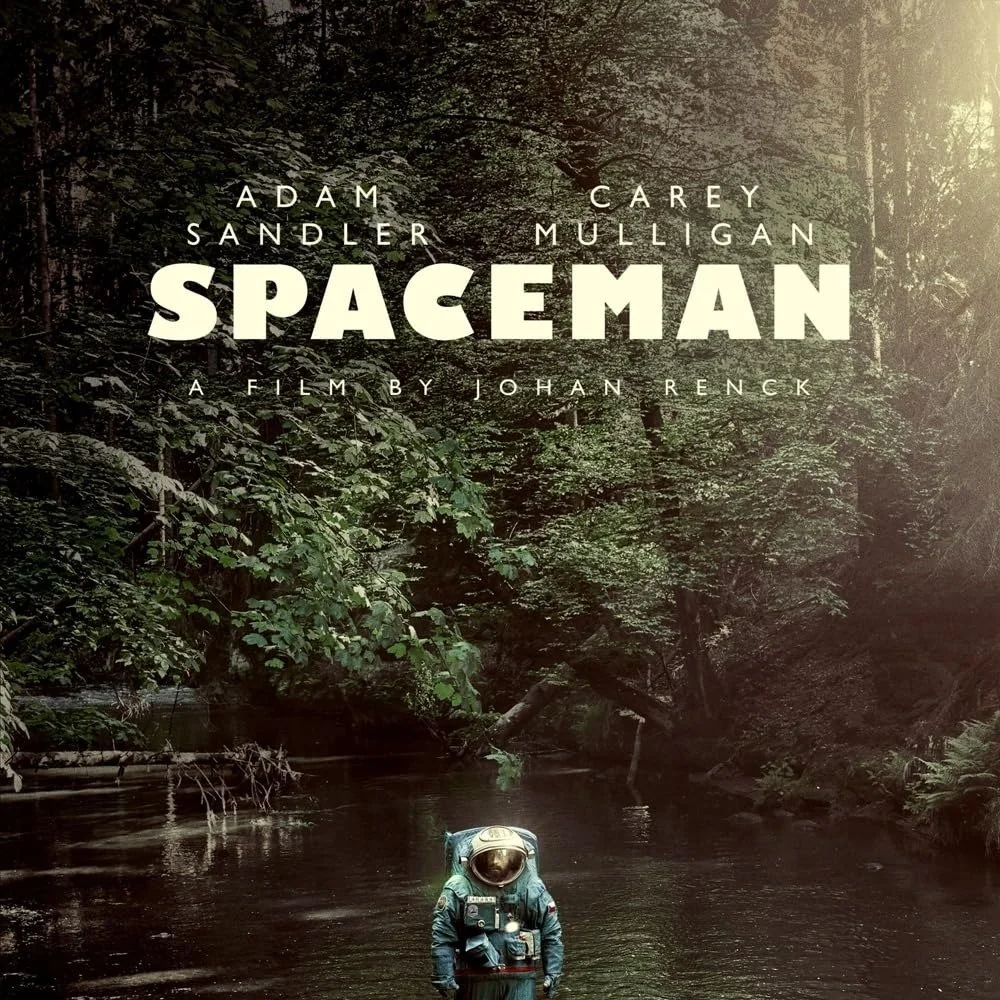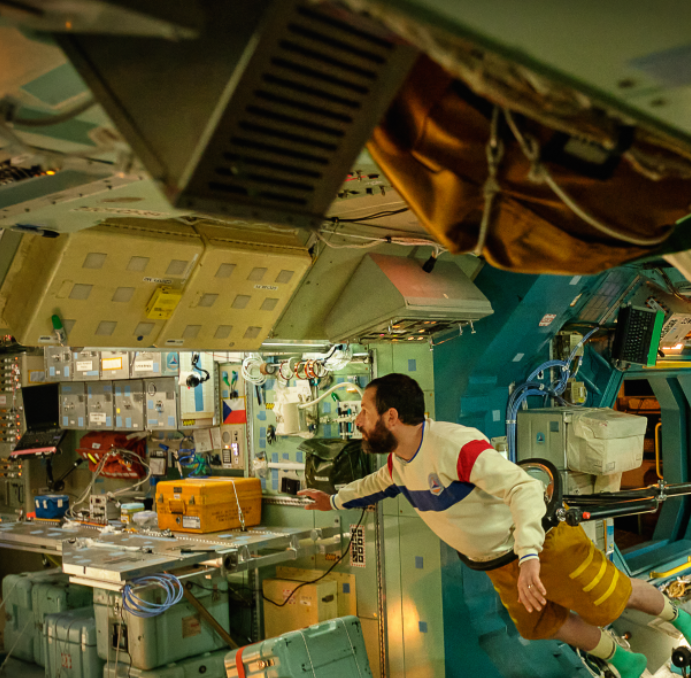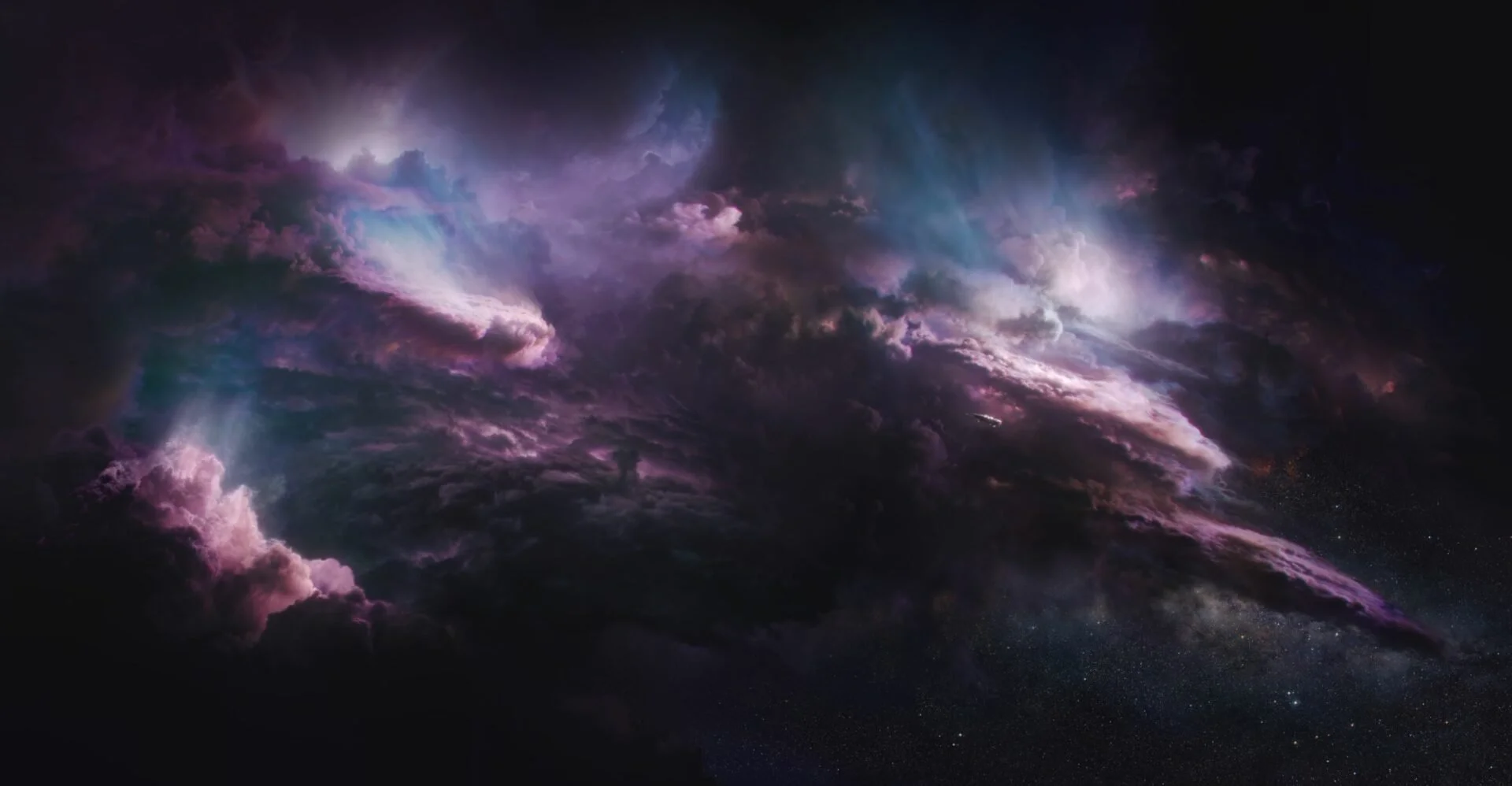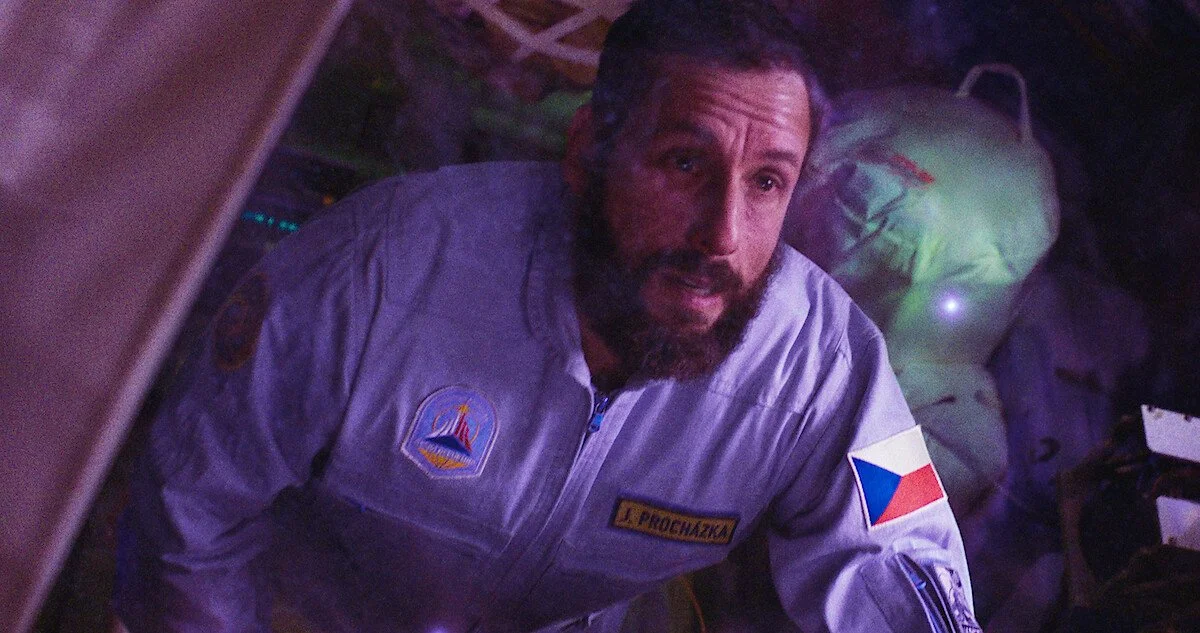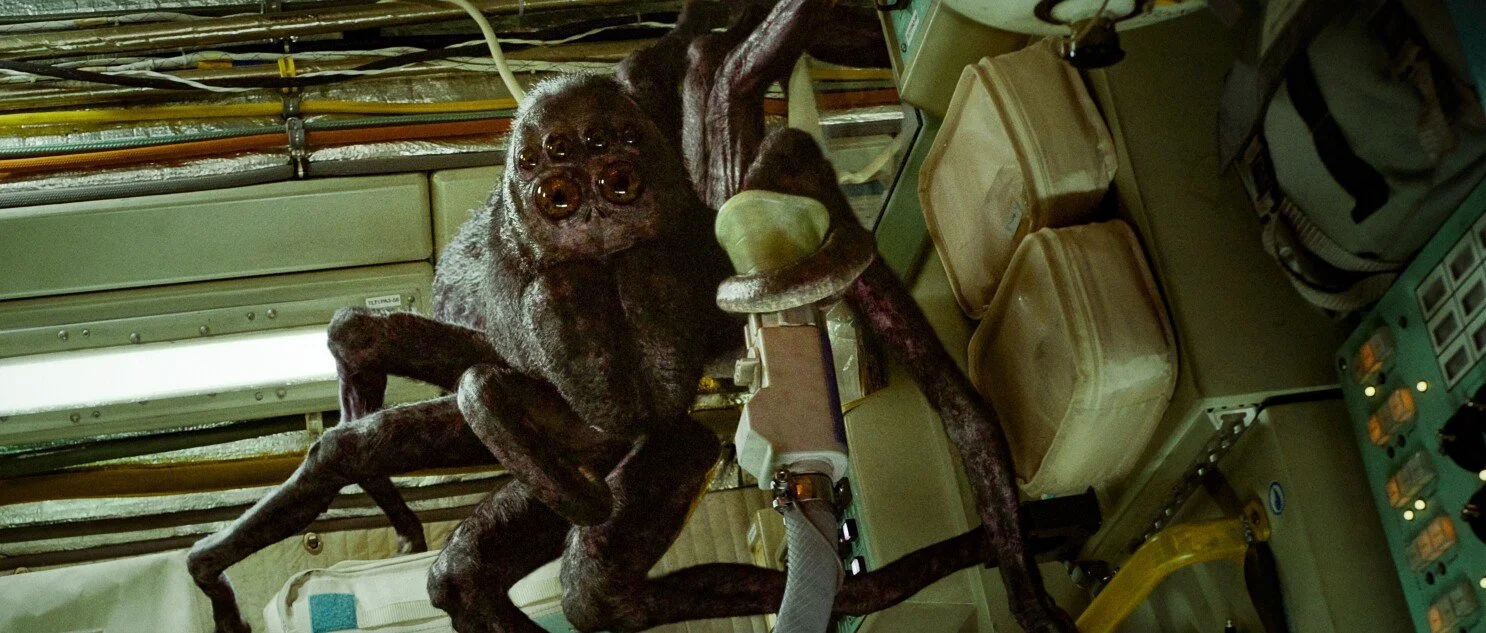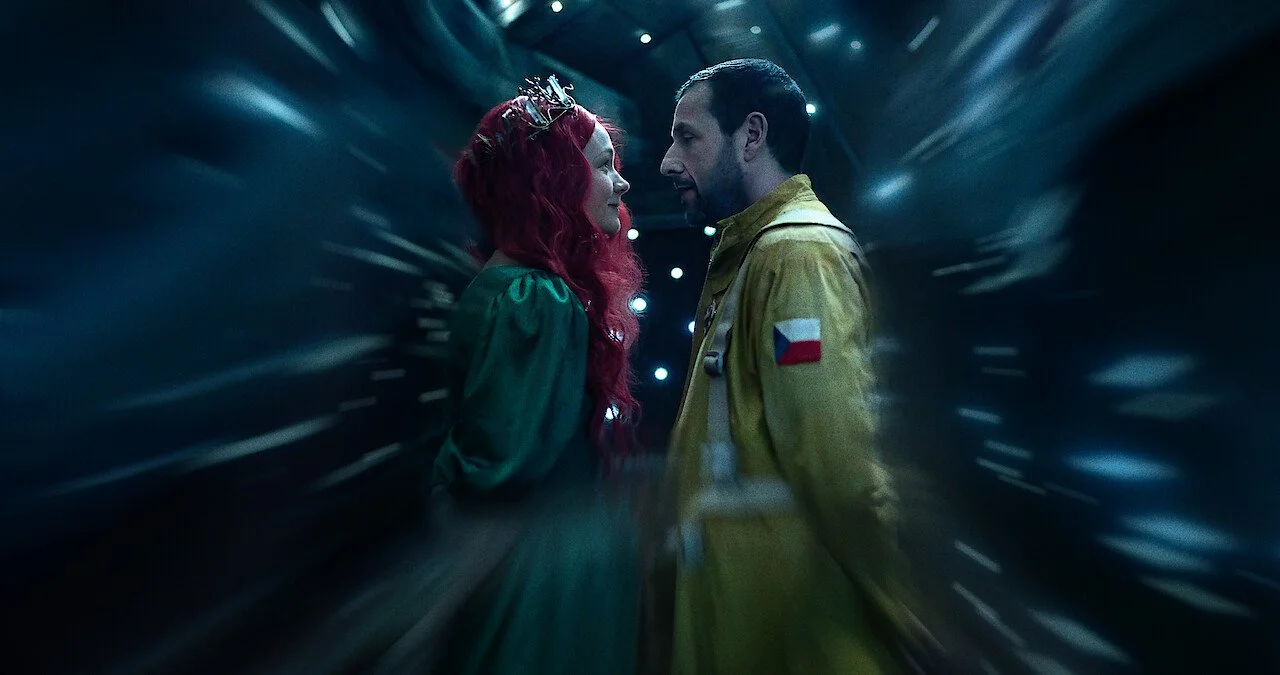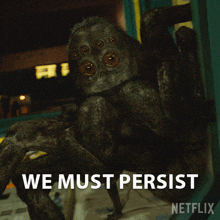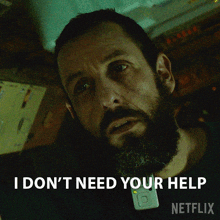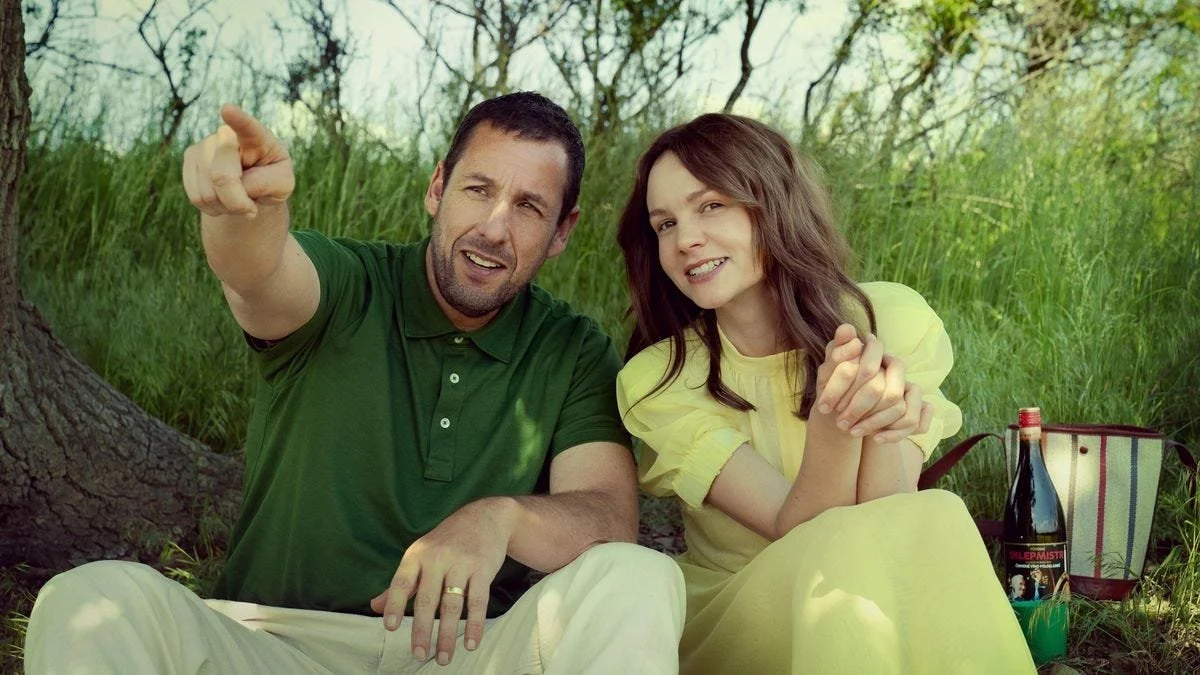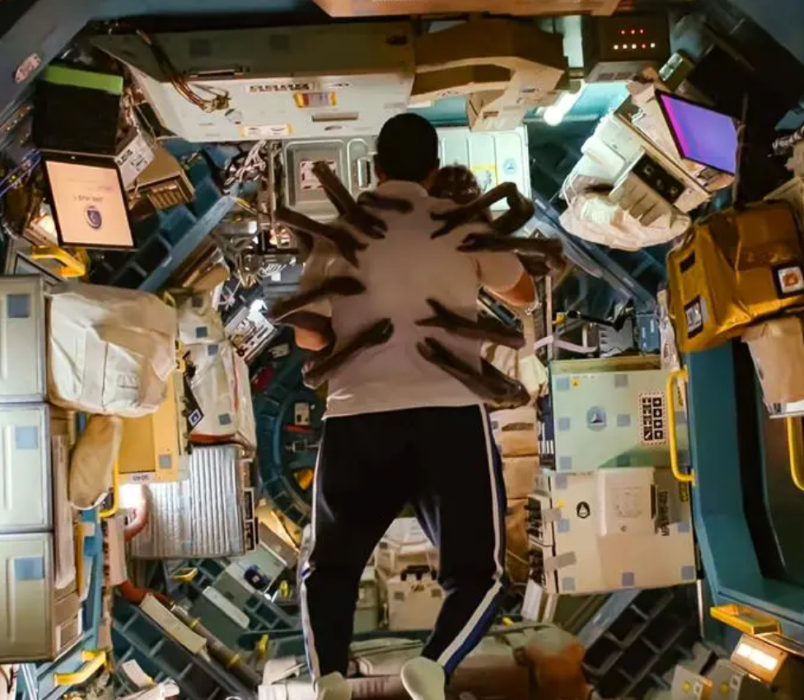Spaceman Review (2024) - A Haunting, Slow-Burning Meditation on Loneliness, Therapy, and Cosmic Capitalism!
Sci-fi month continues in the potato household! We’ve been having so much fun with all the fascinating stories and futuristic technology. But this time around, we wanted to steer away from the action of mechs, lasers, and lightspeed travel into a more insightful and introspective direction. For that, we couldn’t think of a better film to exemplify introspection than Spaceman (2024). This movie isn’t just about stars, ships, and scientific missions; it’s about isolation, regret, and how terrifying it can be to let someone really see you.
At first glance, you might expect a sci-fi odyssey filled with tech jargon and cosmic mysteries, but what you get instead is a slow, melancholic, and painfully human journey of self-discovery. A meditation on loneliness that might just hit a little too close to home for some of us.
Before we dive too deep, we want to offer a gentle heads-up. Spaceman explores some heavy and deeply emotional territory. The film leans heavily into themes of isolation and loneliness, both in the literal vacuum of space and the emotional distance between people. Existential dread, emotional distress, dissociation, and marital conflict that may resonate closely for some viewers are prominent. There's also some mild body horror, unsettling hallucinations, and yes, a very large, very creepy alien spider—so arachnophobia warning!
Please keep these things in mind and watch thoughtfully. We try to avoid spoilers as much as possible, but there are likely to be some, so please read cautiously.
The film opens with our main character, Jakub Prochazka (Adam Sandler), walking in a slowly flowing river in the middle of a forest. It might not seem weird at first—until you realize he’s wearing a full space suit. So definitely starting off a little strange right out the gate. Suddenly, the scene is interrupted, and we see Jakub in a spaceship, having been awoken from his forest dream by a voice on the radio. “Jakub. Are you joining this broadcast?” The voice is mission control, reminding Jakub about an event he needs to attend virtually.
He tells them to hang on before getting out of his sleeping bag and floating across the ship silently. We’re immediately plunged into Jakub’s world: cold, distant, and claustrophobically empty. There’s no heroic music or flashy spacewalks—just a man alone in his ship, surrounded by machinery and the constant hum of electronics. Well, all except his toilet, which is a long vacuum tube that appears to be busted and emits a shrill, random whine like a scream from the void. It becomes a kind of running joke-slash-nightmare.
Jakub is deep into a year-long solo space mission—about six months in. He’s been sent by the Czech space agency to investigate a mysterious pink cloud near Jupiter called the “Chopra Cloud,” a celestial anomaly that could offer groundbreaking scientific data... or not. Honestly, no one seems to care about the science anymore. What they do care about is appearances. He logs in to the aforementioned broadcast and delivers what sounds like an incredibly scripted bunch of lines about how the Chopra cloud is breathtaking and what a huge scientific opportunity this is.
During the call, a young girl is allowed to ask Jakub a question: “Hello, my name is Anna. I’m in sixth grade. And I read that you’re the loneliest man in the world.” Jakub half chuckles, half scoffs at her remark, clearly thrown. The space agency officials try to recover, but the damage is done. Jakub really does feel all alone, isolated hundreds of millions of kilometers away. “Does it make you sad to be so far away?” she asks. He gives a wooden response about all the support he has—mission control, people from around the world, and “of course,” his wife Lenka. The agency throws a photo of the two of them on the screen, and Jakub quickly pivots to shamelessly plug the high tech communication system he uses: “faster than the speed of light phone.” Then he declares, “No, I am not the loneliest man in the world.”
His ship is plastered with corporate sponsorships, and it’s unbelievably bleak. But it’s also disturbingly believable. Every time Jakub talks to mission control, there’s some sort of branded line or a commercial break. We potatoes couldn’t help but cringe when he’s forced to recite sponsor slogans aloud just to do basic tasks. It’s in these moments that we realize—this isn’t just sci-fi. This is capitalism.
Mission control tries to keep things professional, but even that feels staged. They keep hounding him about the ship’s internal cameras, which have mysteriously stopped working. Meanwhile, Jakub begs for help fixing his screaming toilet. “…Orders are that the broken cameras take priority over the toilet, so…” Peter (Kunal Nayyar) tells him flatly. The priorities are revealing. Maybe this mission was never about the pink cloud. Maybe it was about Jakub. About studying what loneliness does to someone. And maybe Jakub’s starting to realize that, too.
Back on Earth, Jakub’s personal life is unraveling. Through brief, haunting flashbacks and video calls that never quite connect, we start to piece together his relationship with his wife, Lenka (Carey Mulligan). Mission control even intercepts her messages, deciding what he should and shouldn’t hear. When they do speak, the connection is brittle. She’s pregnant. He’s... absent. Not just physically, but emotionally. Even before he left, Jakub was already drifting away.
The loneliness is suffocating. There are no books. No music. No distractions. Just endless silence, echoing through the cold corridors of the ship. The food floats in zero gravity, but instead of seeming whimsical, it underscores how alone he is—no one to share a meal with. Every bite echoes with silence.
As the days blur together, Jakub starts slipping. Memories and hallucinations intermingle. Time fractures. He begins revisiting moments with Lenka—warmth, distance, regret—all flickering like static. Sandler brings a restrained, heartbreaking depth to the role that genuinely surprised us.
And then, while trying to sleep, Jakub hears clattering coming from the other side of the ship. He grudgingly gets out of his sleeping bag and floats toward the noise. All his food cupboards are open and vacuum sealed packages of food are floating all over the place. He closes the cupboards but hears that damned toilet shrieking again. He goes toward the bathroom, opens the door, and is met with the sight of an enormous, glassy eyed spider! “I was lulled by the meditative sounds of your tube,” it says, holding the vacuum hose like it’s some treasured keepsake.
This is where the film shifts.
Jakub is no longer alone.
We’ll leave it there to avoid further spoilers!
First off, we potatoes have to say—Adam Sandler delivers! We’re used to his bombastic comedy, but here, he’s soft, quiet, and emotionally locked down in a way that feels authentic. His restraint is moving. We half-expected him to shout at some point—because his voice is so familiar—but he never does. He carries the role with a quiet strength that totally exceeded our expectations. His performance surprised us in the best way!
Mission control seem so concerned about Jakub being the first to the Chopra cloud, that the goal takes priority over anything else. Their obsession with the ship’s broken cameras feels a little too much like a need for surveillance and control over Jakub, and less like a genuine concern for his well-being. “Oh, don’t worry about the hissing in your bathroom that keeps you up when you’re trying to sleep, Jakub. But the second we can’t see you cry into your vacuum-sealed spaghetti? Panic.”
Then there’s Hanus, the eight-legged, velvet-voiced space spider voiced by Paul Dano. And listen, we’ve heard a lot of people say he’s creepy. Sure, he's a big cosmic arachnid who slinks through shadows and has too many limbs for comfort. But he’s also the most compassionate therapist Jakub’s ever had. This spider doesn’t want to bite, he wants to understand. He crawls into Jakub’s memories like a counselor easing someone into their first ever therapy session: gently, persistently, and with a voice like warm tea.
“Maybe I can help you with your loneliness,” Hanus offers, early on. We potatoes were surprised, freaked out, and at the same time, felt a warmth from Hanus that’s difficult to put into words.
Because loneliness is really what this movie is about. Not just the obvious physical kind (though yes, floating alone in space with no human contact for months will do things to a person), but the kind of loneliness that sneaks into your bones even when you're surrounded by people. Jakub has clearly known that version of isolation his whole life. The trauma, the emotional repression, the way he pushes people away, not because he doesn’t want connection, but because he doesn’t know how to receive it when it’s offered.
We potatoes have endured extreme isolation before and understand just how damaging it can be. Even introverts need connection, humans are, by nature, social creatures. While everyone's need for interaction varies, complete and prolonged isolation is deeply harmful. There's a reason solitary confinement is used as punishment in prisons: it's a harsh, cruel experience. We potatoes see it as nothing less than a form of psychological torture. But we digress!
Jakub’s relationship with his wife Lenka, played beautifully by Carey Mulligan, is the heartstring that holds this film together. Their love feels real but is often one-sided with Lenka shouldering the majority of the burden of keeping them together. The flashbacks, fragmented and blurry like fading memories, show a man who never really knew how to be with someone, even while sharing a life. The fact that Jakub keeps choosing isolation, even when he claims to hate it. That’s where the film hits hardest. Trauma wrapped in neurodivergence; self-sabotage dressed up as stoicism.
And we haven’t even touched on the corporate commentary yet! Any request Jakub makes to mission control has to be accompanied by a sponsor’s slogan. It’s so absurd it almost veers into satire, but it’s not far from the truth! Capitalism doesn’t even leave us alone in outer space. Jakub’s entire existence is being monetized while he silently falls apart in the vacuum of corporate indifference.
But tucked into all the bleakness is something tender. A transformation. Jakub does begin to open up, in his own halting, heartbreaking way. Therapy, (especially when it’s delivered by a literal space spider) is scary. Vulnerability is scary. Honesty is scary. But this film doesn’t let those fears be the end of the story.
Instead, it quietly suggests that we can do scary things. That we can learn to love again. To face ourselves. To be honest with ourselves. And maybe even come back from wherever we’ve mentally drifted off to. The giant spider might sound bizarre at first, but it’s actually a brilliant way to represent how uncomfortable and horrifying therapy can feel. It completely surprised us, in the best possible way, and ended up being one of the film’s most powerful choices.
We won’t spoil the ending, but it left us teary. There’s hope in the quiet. A sense that reconnection, while difficult, is still possible. We potatoes adored this movie and love the messaging! That we can choose to return to ourselves—and each other.
So! If you’re looking for fast-paced sci-fi heroics, this isn’t your movie. But if you’re in the mood for something slow, strange, and emotionally resonant, Spaceman might be the cosmic therapy session you didn’t know you needed. We potatoes highly recommend this film!
Its introspective storytelling and emotional weight serve as a powerful reminder that sometimes the scariest monsters aren’t out in space—they’re the ones we've buried deep within ourselves. The fears we refuse to name. The pain we carry quietly. The people we push away when we most need them close. This message resonates deeply with those willing to confront it—and with anyone who’s ever felt a little too far from home and themselves, even in a room full of people.
So, cheers to Jakub, for finally working through the pain and isolation. For choosing to open up, and be honest even when it would’ve been easier to shut down. Cheers to Lenka, for always doing her best and for finally starting to put herself first. For holding on and letting go, in equal measure. And most of all… cheers to you! For surviving. For trying. For showing up. You’re not as alone as you think. We see you. And we’re floating right here with you.
We potatoes give Spaceman 5 out of 5 Nutella cocktails!
The Spaceman Drinking Game
Take a sip anytime:
1. Jakub radios home
2. There's a flashback or dream
3. Jakub does a normal task but in space (workout, eat, brush tooth, etc.)
4. Anytime the toilet goes nuts
5. Anyone points out Jakubs loneliness
6. Anyone says "Lenka"
7. Anytime the corporate shit bleeds in, like Jakub needing to do a sponsorship, etc.
8. Anytime the spider says "skinny human"
9. Anytime the spider says "my apologies"
10. Jakub takes sleep drops
11. Chopra is mentioned or is on screen
12. Jakub says "Hanus"
What did you think? Did you like the movie? Did you hate it? What movies should we watch? Any and all thoughts are welcome! Let us know here in the comments and always remember to be safe and drink responsibly!
What do you think? Do you like this drinking game? Are there rules missing? Is the game too intense? Are there movies that you think we should make a drinking game for? Let us know here in the comments and always remember to be safe and drink responsibly! (Drinks can be water, soda, anything nonalcoholic, etc. Please be safe, have fun and take care of you!)
